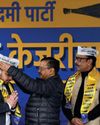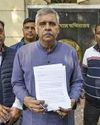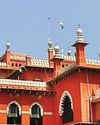
The discourse around sub-classifying Scheduled Castes (SCs) and Scheduled Tribes (STs) in India is a complex and deeply sensitive issue. It brings to the forefront fundamental questions about fairness, equity, and social justice. While there is an undeniable need to ensure that the most vulnerable groups within these communities receive adequate support, there is also legitimate concern that additional sub-classifications could lead to fragmentation and undermine the overarching goals of existing policies. The debate over sub-classification is not merely about administrative adjustments; it touches on the very fabric of India's approach to affirmative action.
CONSTITUTIONAL FRAMEWORK
The Indian Constitution lays down a framework for equality and non-discrimination through Articles 14, 15, 16, and 341. Article 14 guarantees equality before the law and equal protection of the law, while Article 15 prohibits discrimination on grounds of religion, race, caste, sex, or place of birth. However, both Articles 15 and 16 also allow for positive discrimination, enabling special provisions for socially and educationally backward classes, which include SCs and STs.
Article 341 further grants the President of India the authority to officially designate groups as Scheduled Castes, providing them with certain protections and benefits. However, once a group is included in this list, only Parliament can make modifications. This creates a legal framework where the rights and benefits of SCs and STs are tightly governed, leaving little room for sub-categorization at the state level.
THE LEGAL BATTLE
This story is from the October 22, 2024 edition of The Business Guardian.
Start your 7-day Magzter GOLD free trial to access thousands of curated premium stories, and 9,000+ magazines and newspapers.
Already a subscriber ? Sign In
This story is from the October 22, 2024 edition of The Business Guardian.
Start your 7-day Magzter GOLD free trial to access thousands of curated premium stories, and 9,000+ magazines and newspapers.
Already a subscriber? Sign In

Fitness Influencers Rohit Dalal, Akshay Dilawari Join AAP
Fitness influencers, Rohit Dalal and Akshay Dilawari, known for their work in the sports and fitness industry, joined the Aam Aadmi Party (AAP) on Thursday.

AAP Keeps Giving Strange Statements to Be in News: BJP
After the Aam Admi Party (AAP) accused Congress of \"speaking the BJP language\", Bharatiya Janata Party MP Sudhanshu Trivedi on Thursday took a dig at the AAP, saying that they make such strange statements to remain in the news, adding that their statement is an admission of their defeat in the Delhi elections.

Cong Accuses Kejriwal of Shifting Blame as AAP's Credibility Collapses
The Delhi unit of Congress claims that the fear of losing the upcoming assembly elections is now haunting Arvind Kejriwal.
NDMC Passes Resolution Condemning Delhi Govt's Schemes
The New Delhi Municipal Corporation (NDMC) on Thursday passed a resolution condemning the AAP-led Delhi government's 'Mukhya Mantri Mahila Samman Yojna' and 'Sanjeevani Yojna'.

Sandeep Dikshit complains to LG against AAP's 'Mahila Samman' scheme
Congress's complaint comes a day after a couple of departments under the Delhi government clarified there is no such scheme and distanced themselves from AAP's promises.

CASH FOR VOTES: AAP MOVES TO ED
Sanjay Singh lodged a complaint with ED against Parvesh Verma, Manjinder Singh Sirsa for allegedly distributing cash to voters.
![Kerala High Court: Quashing Of Serious Offence To Efface Evidence Already Recorded Cannot Be Done Even At Instance Of Survivor [POSCO Act] Kerala High Court: Quashing Of Serious Offence To Efface Evidence Already Recorded Cannot Be Done Even At Instance Of Survivor [POSCO Act]](https://reseuro.magzter.com/100x125/articles/26854/1941485/3Dir29po62bcaaKmtxZsys/KERALA-HIGH-COURT-QUASHING-OF-SERIOUS-OFFENCE-TO-EFFACE-EVIDENCE-ALREADY-RECORDED-CANNOT-BE-DONE-EVEN-AT-INSTANCE-OF-SURVIVOR-POSCO-ACT.jpg)
Kerala High Court: Quashing Of Serious Offence To Efface Evidence Already Recorded Cannot Be Done Even At Instance Of Survivor [POSCO Act]
The Kerala High Court in the case xxx v State and Another observed and has dismissed the petition filed by a victim of POCSO offence to quash the proceedings saying that serious offences are involved and the trial had reached at the end stage.

Punjab And Haryana High Court: POSCO Act Being Enacted Subsequently Will Prevail Over SC/ST Act In
Adding to it, the court stated that when there being a conflict between the provisions of two special enactments, it is trite that the provisions of the latter of the two enactments will prevail and since the POCSO Act is a subsequent enactment, therefore, its provisions will prevail over the SC/ST Act.

Madras High Court Grants Interim Bail To Temple Activist, Asks Him To Refrain From Making Objectionable Comments Against Women
The Madras High Court in the case Rangarajan Narasimhan v State of Tamil Nadu observed and has granted bail to temple activist Rangarajan Narasimham for allegedly making derogatory comments against a woman on social media.

Orissa High Court: Dispute Related To Infringement Of Copyright Is Arbitrable, Arbitrator Can Be Appointed Under Section 11 Of Arbitration Act
The Other party opposed the application which being on the ground that the dispute as evident from the petitioner's notice seeking the appointment of an Arbitrator regards to infringement of copyright which is non-arbitrable.